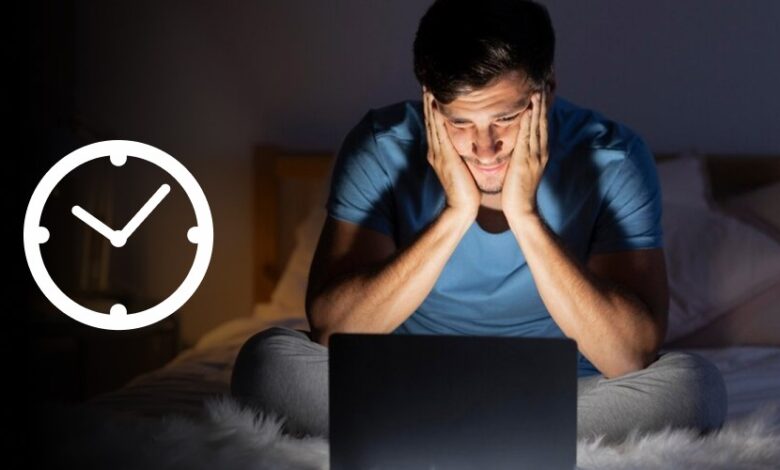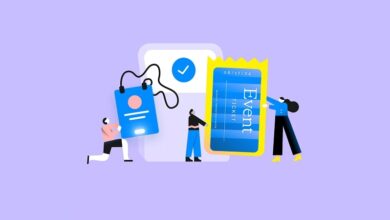How Much Phone Screen Time Is Too Much for Adults?

Smartphones are an integral part of daily life in today’s digital age, connecting us to work, friends, entertainment, and information. Although technology is undoubtedly beneficial, the increasing reliance on smartphones has led to an important question: how much screen time is too much for adults? It has been found that activities involving frequent phone usage have a deleterious effect on physical health, mental health, and organizational effectiveness, yet this often occurs priests unconsciously.
Realizing how often and for what these gadgets need to be used and for what they are needed without becoming an addiction, requires a careful approach toward improving one’s overall health. In this blog read, about the amount of screen time recommended to adults, the impact of screen time, and tips on managing device addiction.
What is Screen Time?
Screen time means the amount of time spent working with screens including smartphones, computers, tablets, and television. For adults, the main contributors to daily screen time include:
- Work-related activities include attending business emails, digital meetings, and documents.
- Social media use such as Facebook, LinkedIn, Instagram, TikTok video downloader, or any other social network while scrolling feeds.
- Entertainment includes streaming videos e.g. movies, TV shows, and playing games.
- Online shopping and browsing.
- Digital communication including messaging and screen sharing video call apps.
Note: Even if the time spent during screen time is well spent, it is still counterproductive and unhealthy after certain levels are surpassed.
How Much Screen Time is Recommended for Adults?
In the case of children, the guidelines are clear that 1-2 hours of recreational screen time for children is enough, but the healthy limit to screen time is not defined for adults. However, it is recommended that adults should spend not more than 2-4 hours using screen time for leisure activities apart from work. Any amount of screen time beyond this, say 7 to 8 hours per day interacting with technology for work or leisure will have detrimental impacts.
Average Adult Screen Time According to Studies:
According to studies, working adults use their screens for 7-9 hours a day. Social media usage alone stands at 3-4 hours on average for users of Smartphones.
Signs You Are Spending Too Much Time on Your Phone
Do you spend most of your time, interacting with your smartphone? But still unaware of whether your screen time is excessive, here are key signs:
- Neglecting Real-World Interactions: If you are more concerned with your phone than you are with friends or family in real life, then you have a phone addiction.
- Prioritizing Social Media Over Sleep: Spending hours on end browsing through your social media accounts can reduce the amount of sleep you have and therefore the level of energy you possess, and reach other adverse effects soon.
- Experiencing Physical Symptoms: Users who sit for such long hours in front of the screen experience eyesight strain as well as develop headaches and neck pain. If you go through any of these, you should try to limit the time you spend using your phone.
- Feeling Anxious or Depressed: Excessive dependence on social media leaves people feeling hopeless and constantly comparing themselves. If you are feeling anxious or depressed, it is probably wise to cut down your screen time.
- Difficulty Focusing: The use of a mobile phone can be distracting when handling tasks, seeing this all the time may affect your focus. This can affect your productivity and your health in general in a negative way.
Effects of Excessive Screen Time for Adults
The ill effects of excessive screen time for adults include the following:
- Physical Health Issues
Taking into account that by even simply scrolling through the phone screen, certain risks are still present, that means that long active hours consuming the screen can pose serious threats to human’s physical and mental well-being. By looking for a long time at screens, the eyes become strained, headaches, and vision becomes blurry. If people bend their necks forward to look at devices for a long time, they will likely end up with pain in the neck and back.
- Mental Health Concerns
Concerning mental health, screen time may interfere with sleep and cause delays in sleep owing to exposure to blue light. Constant distraction from notifications causes stress and anxiety while gluing to social media makes people socially isolated. Scientists revealed correlations between constant use of social networks and higher risk of depression and anxiety.
- Reduced Productivity
Moreover, phones are also among the causes of lost productivity levels in organizations. Notifications and the impulse to unlock the gadget disrupt productivity and may reduce concentration periods. This results in a loss of efficiency whereby the rate at which work is completed reduces as well as decreased quality of work produced.
- Weakened Relationships
Another downside for adults that comes with excessive phone screen time is that relationships become weakened. Time spent on devices can negate actual time spent with people. Technology also reduces face-to-face communication and as a result, misunderstandings occur.
Tips to Manage and Reduce Screen Time
Here are the practical tips to help you reduce the screen time:
- Track Your Screen Time
Built-in tools are available such as “Screen Time” in iOS, or “Digital Wellbeing” in Android, use these to track your screen time. Find out the apps that you have used most frequently and restrict the number of times you use those apps to a certain number of times per day.
- Set Phone-Free Zones
Do not use phones when at dinner, speaking with someone, or moments before going to sleep. Create the “no screen zone”, where the kids are not allowed to play the devices, like bedrooms, bathrooms, etc.
- Schedule Screen Breaks
Follow the 20-20-20 Rule: After every 20 minutes, look at something 20 feet away from you for 20 seconds. Enable the use of tools such as “Focus Mode” to set away time with no work.
- Limit Notifications
This means that one should restrict alerts he or she does not want to receive to prevent distraction. Avoid having too many notifications on social media to forget to check them continuously.
- Replace Screen Time with Offline Activities
Substitute activities that were normally done using a screen for offline ones. Replace screen time for phone scrolling with activities such as reading, exercising, cooking, or going outside. Spend less time on your gadgets, computers, laptops, smartphones, and tablets.
- Use Apps to Limit Usage
This means that you can use some applications that can help to reduce screen time or remind a person to take a break now and then. It should also be possible to set an app timer, to control the amount of time spent on social media or other applications.
- Prioritize Sleep Hygiene
Reduce the use of screens at least one hour before one goes to bed. Reflect on your usage and ask yourself: “Is this productive or necessary?” when you have the urge to grab your phone. Establish specific goals for using your phone so that you won’t end up mindlessly browsing.
Conclusion
In conclusion, there isn’t a specific number for perfect screen time, adults should limit the use of recreational screens for 2-4 hours daily. Make sure what you do nourishes your body and mind off the screen more than on it, and use technology more as a tool rather than a thief of time. Set good boundaries and develop mindful behaviors to ensure a healthy interaction with your phone.





